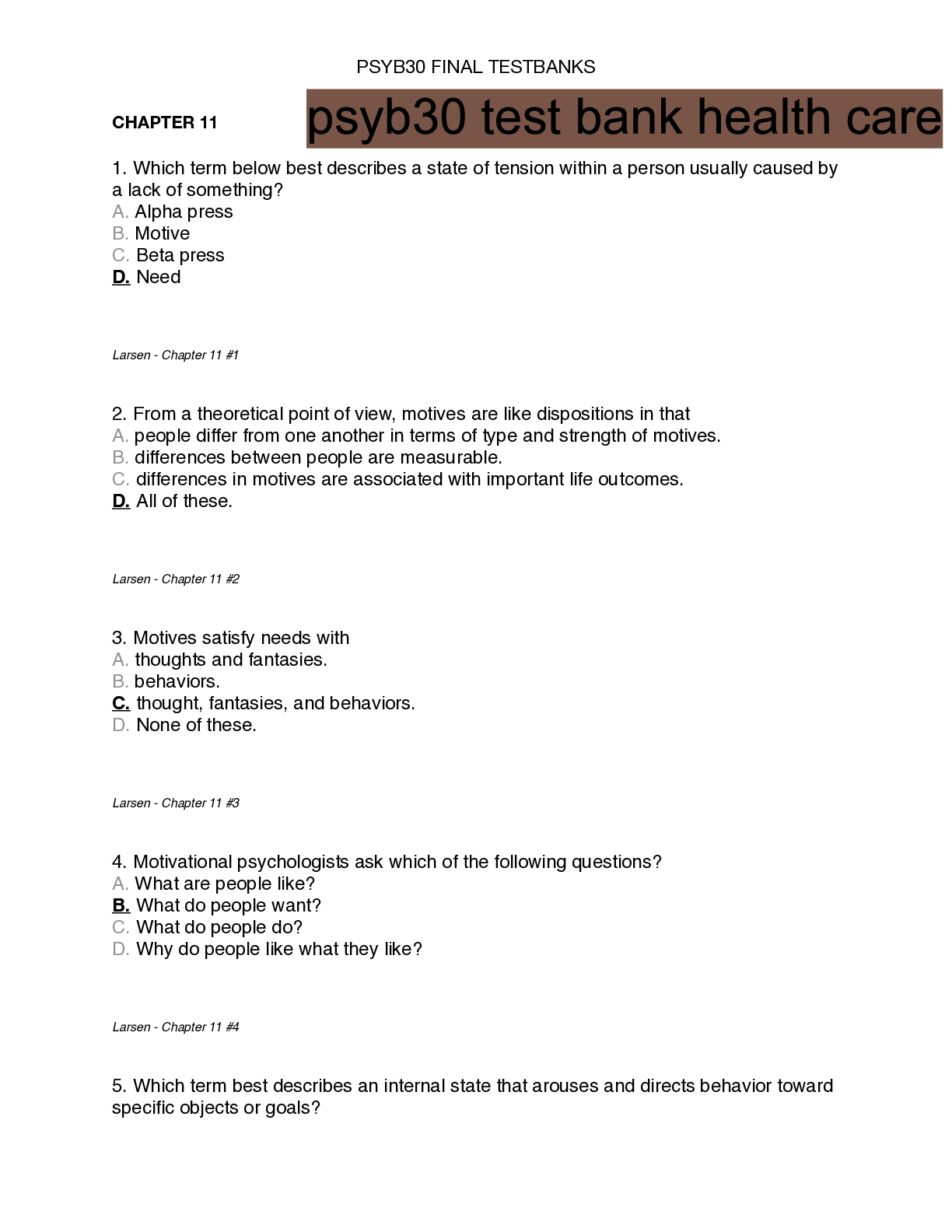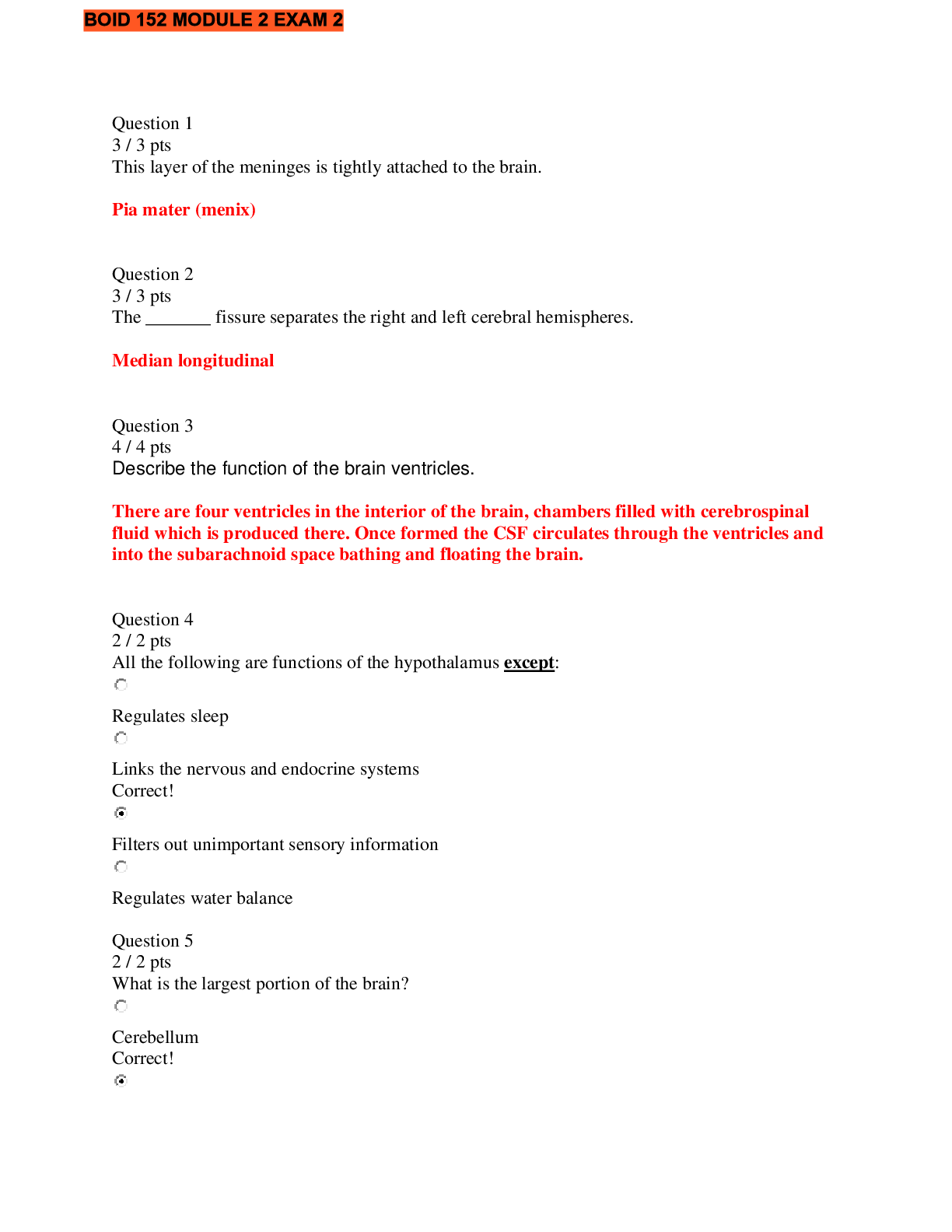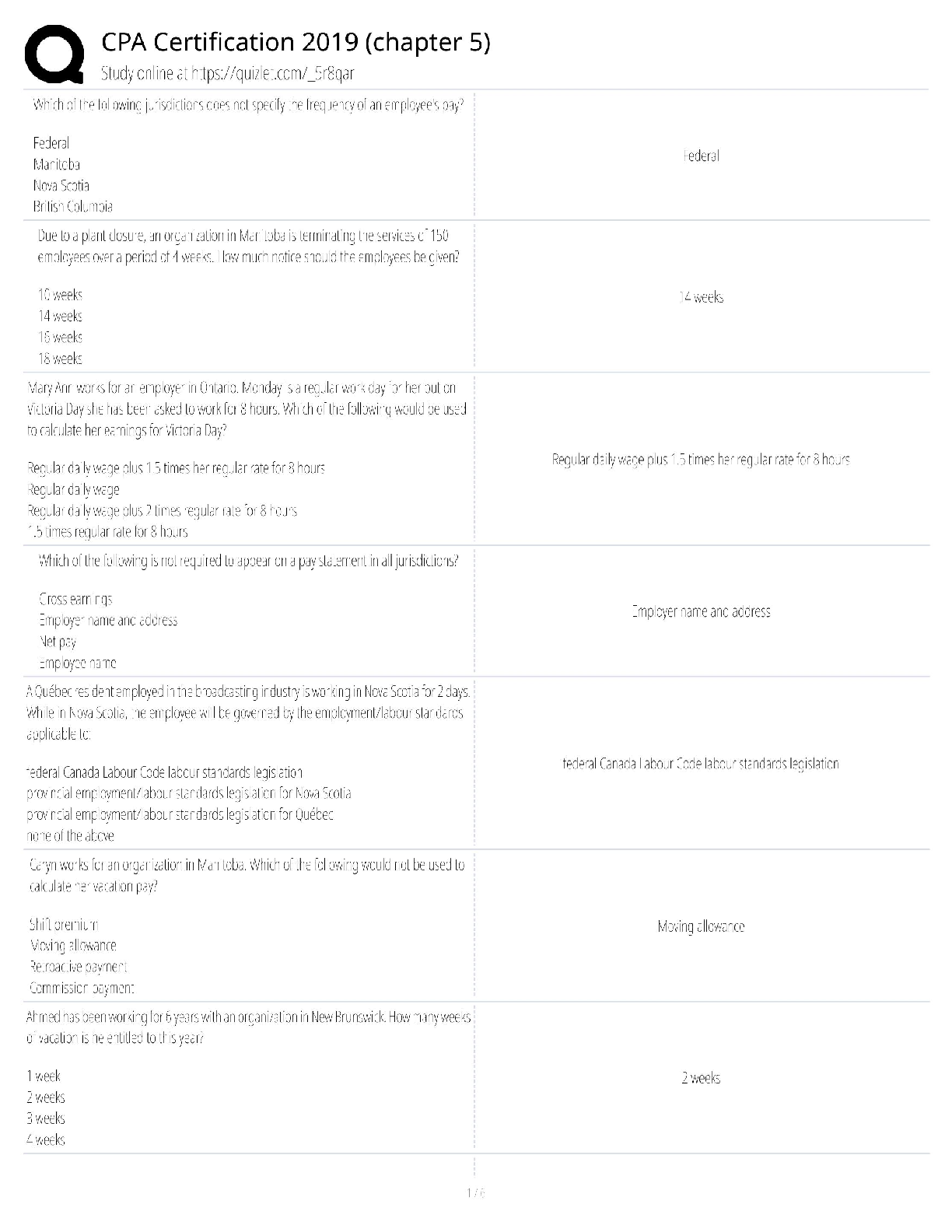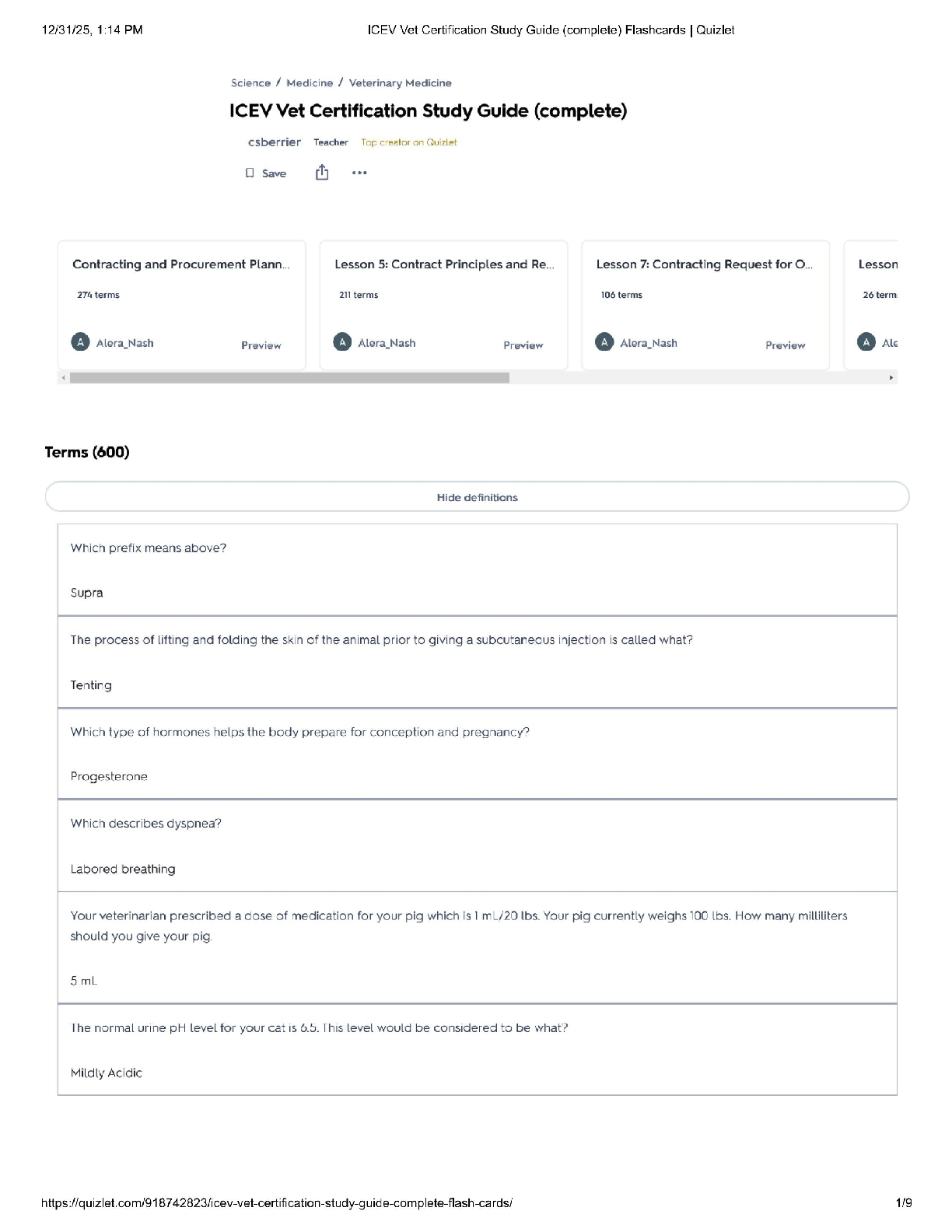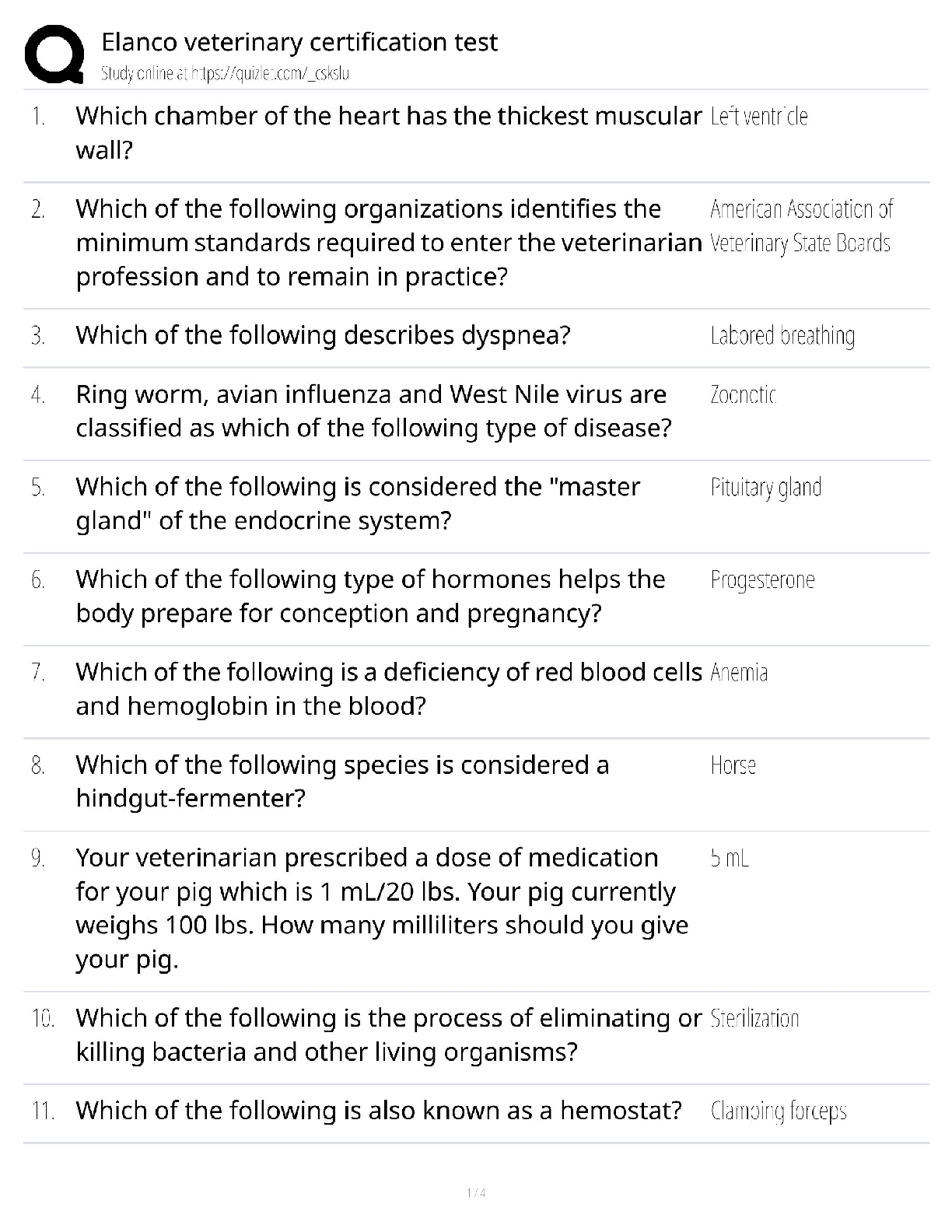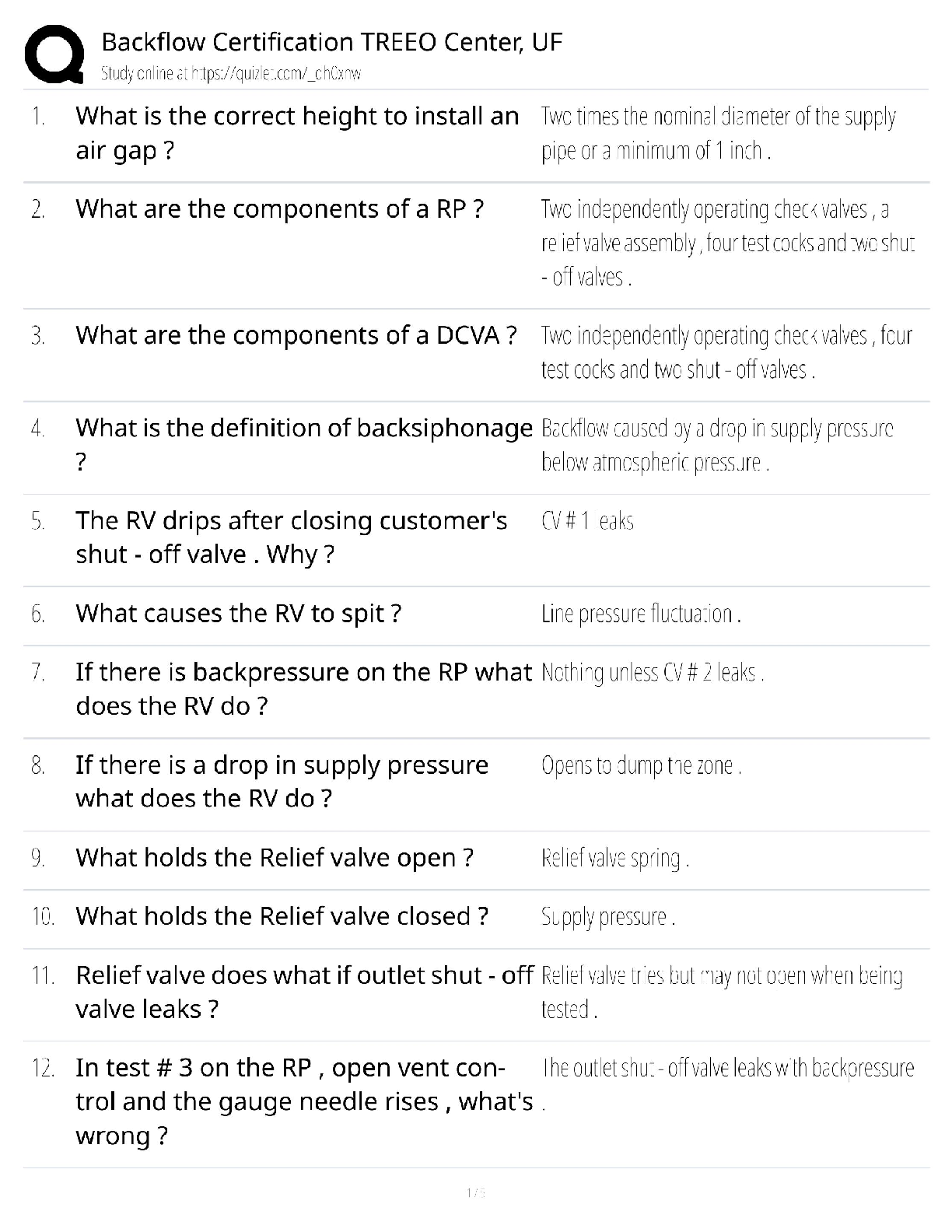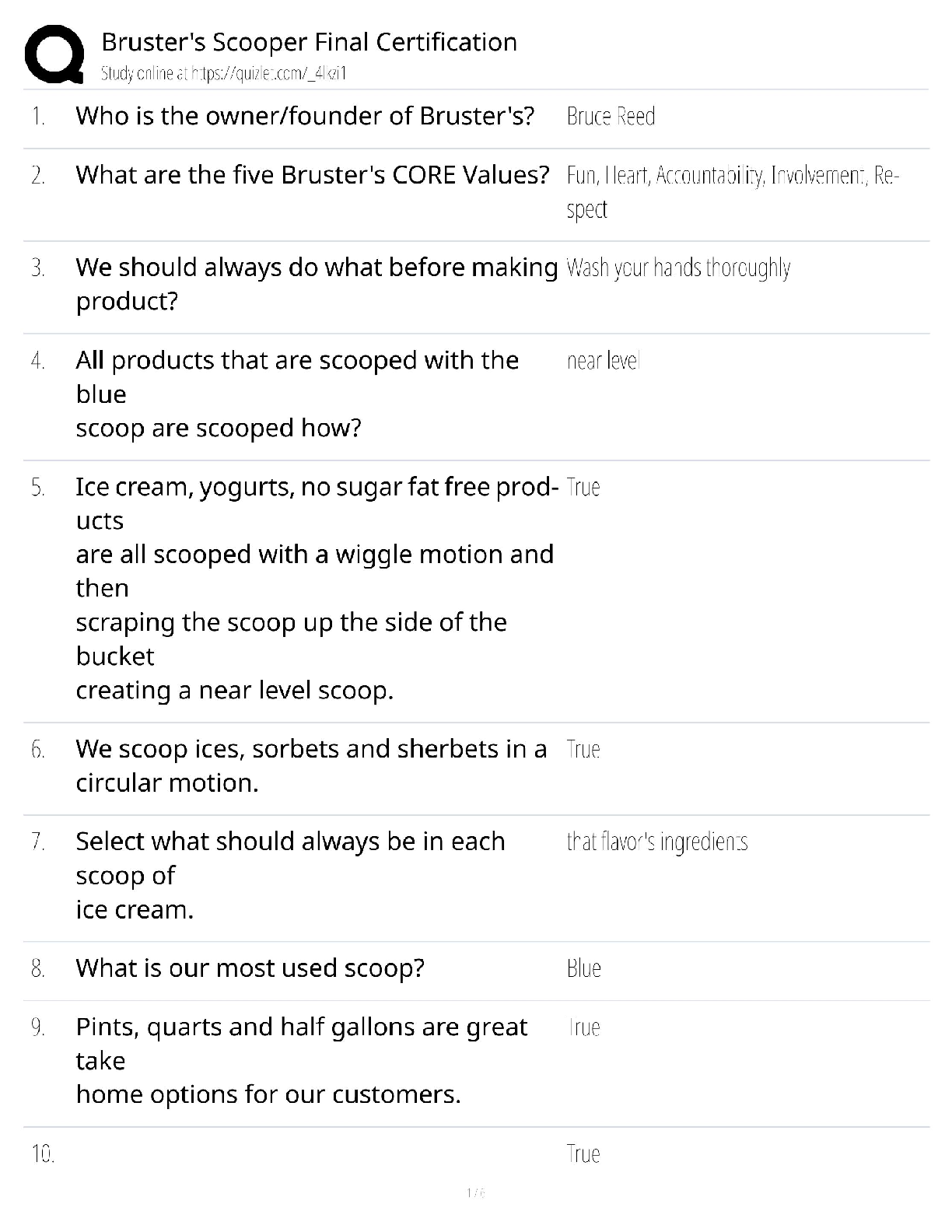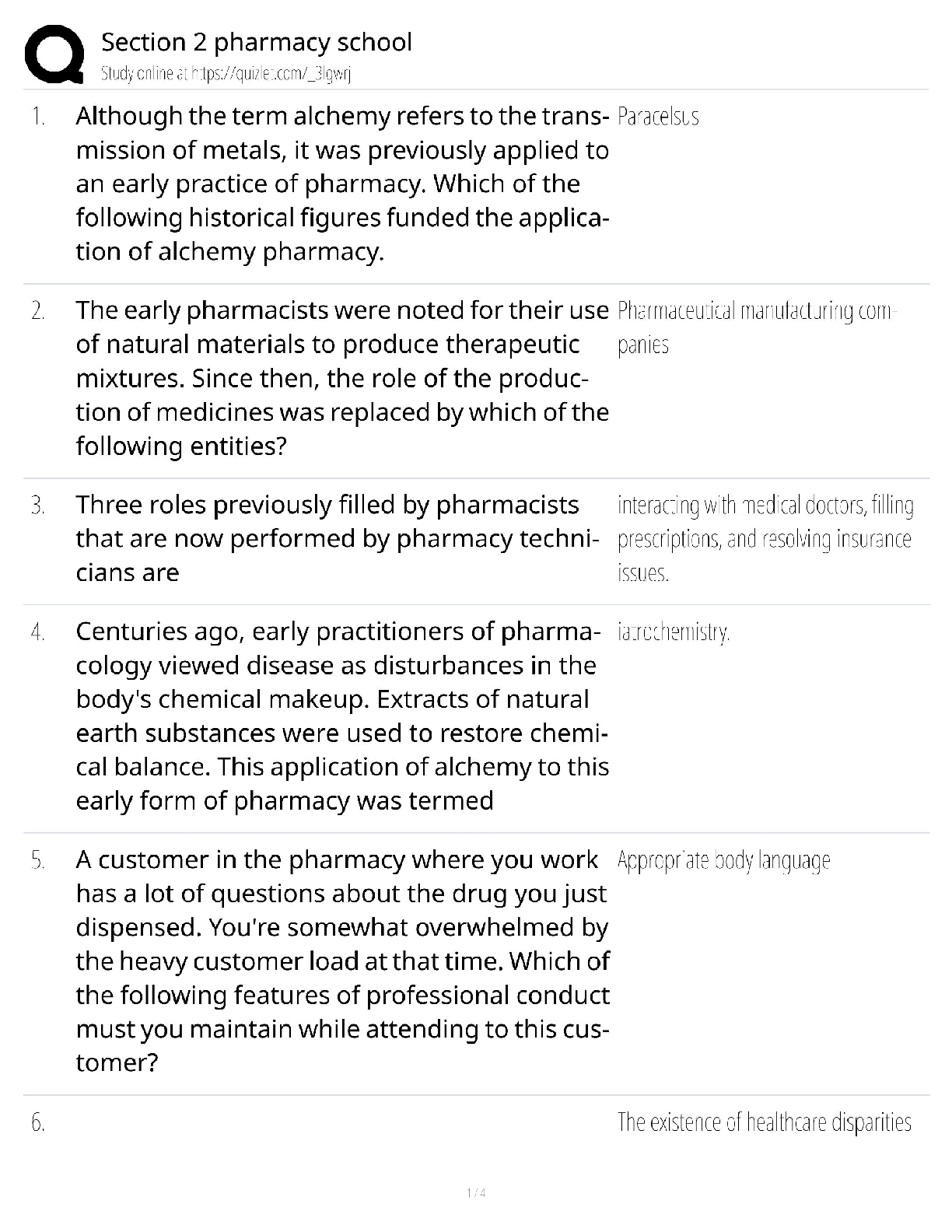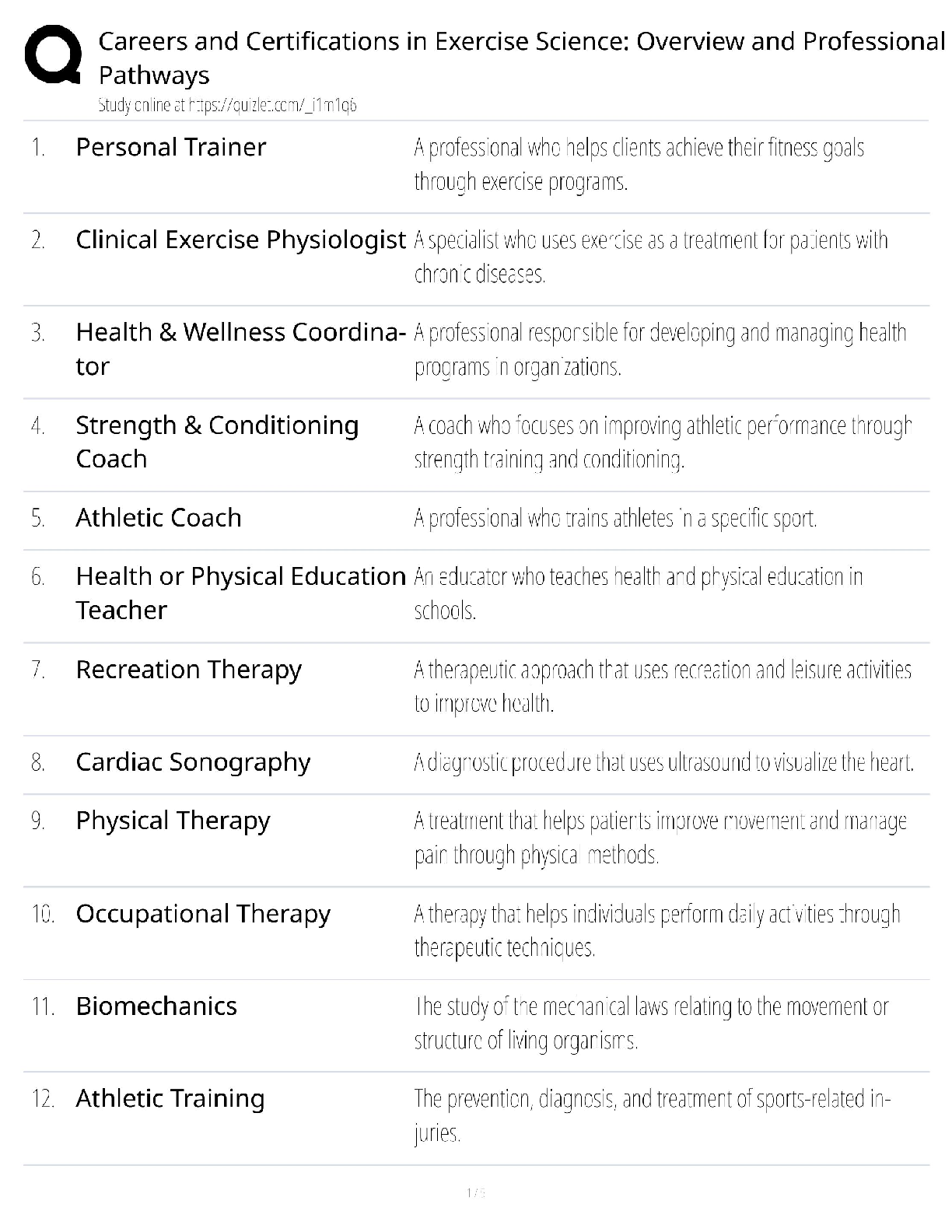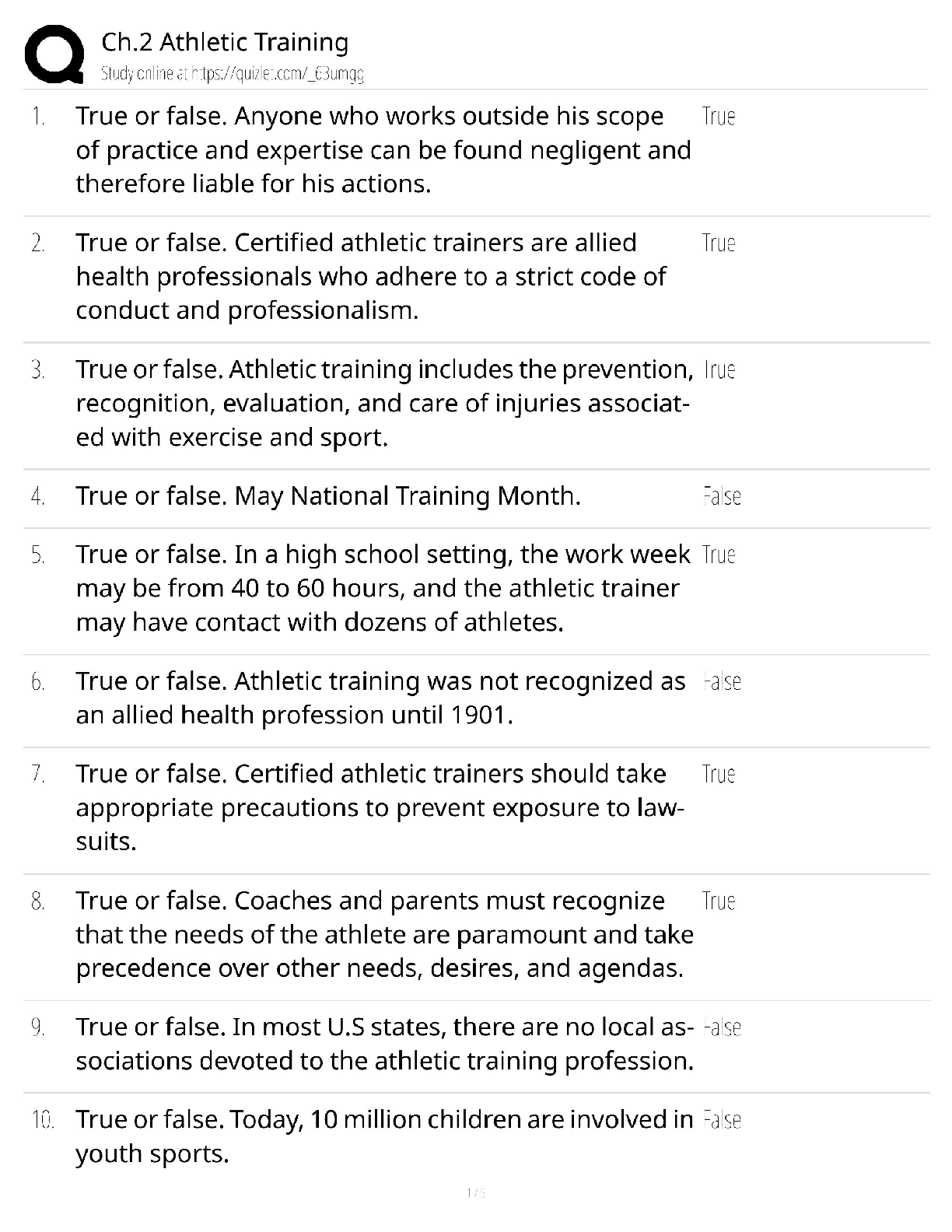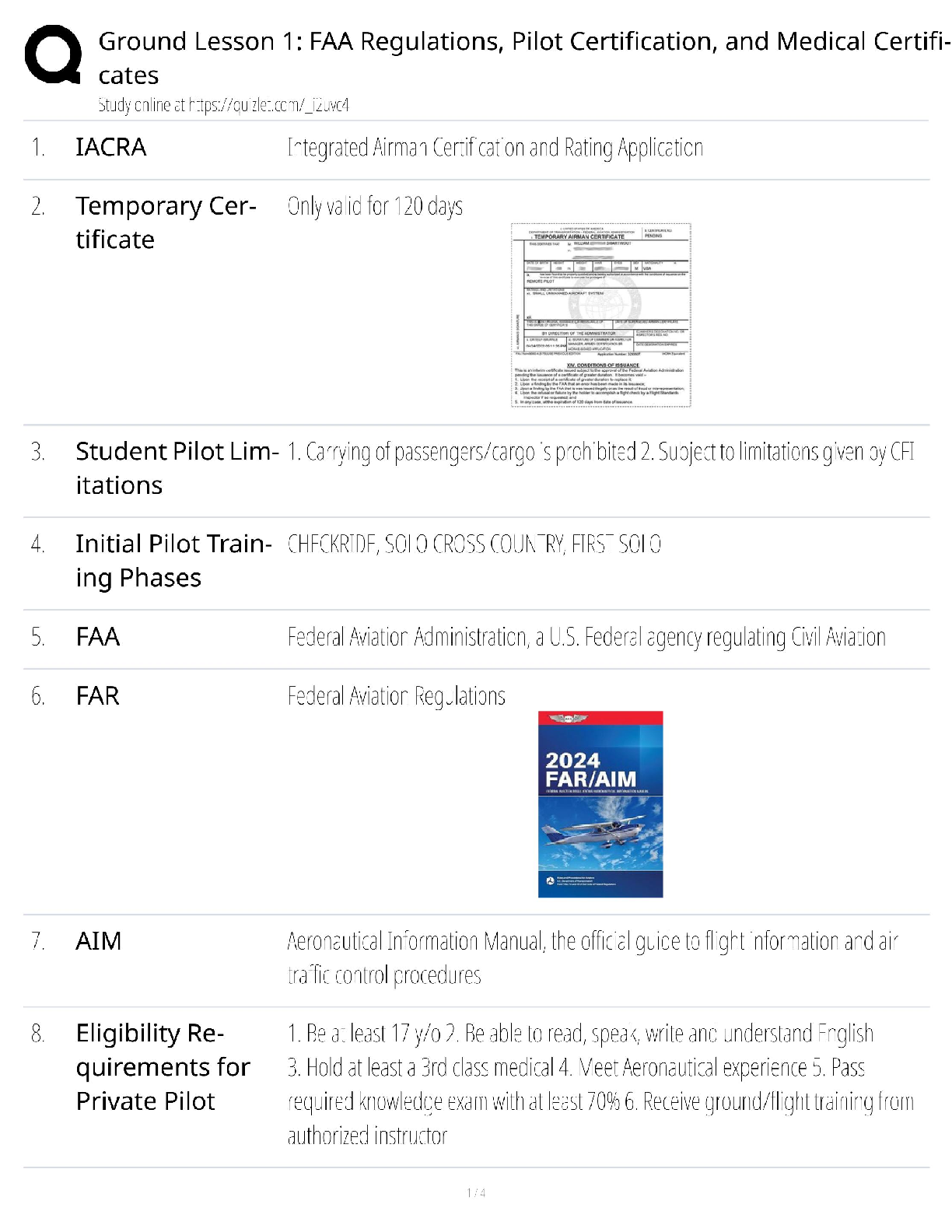Biology > QUESTIONS & ANSWERS > BIOD 151 ALL EXAMS ANSWER KEY LATEST VERSION (All)
BIOD 151 ALL EXAMS ANSWER KEY LATEST VERSION
Document Content and Description Below
What is the study of the structure of the human body? A. Anatomy B. Physiology C. Anabolism D. Catabolism E. Metabolism A. Anatomy 2. B. The liver is an example of the organ level of organiza ... tion in the human body A. Sodium B. The liver C. Mitochondria D. The skeletal system E. Epithelium 3. What is the breakdown of nutrients? A. Anatomy B. Physiology C. Anabolism D. Catabolism E. Metabolism D. Catabolism 1. List the four basic types of tissues. Epithelium, muscle, connective, and nervous tissue 2. List the three layers of the skin in order from deep to superficial. The deepest layer of the skin should be at the top of your list. To receive credit the layers must be in this order. BIOD 151 ALL EXAMS ANSWER KEY LATEST VERSION hypodermis (inner, also called subcutaneous tissue layer) dermis (middle layer) epidermis (outer layer) *MUST be in this order (top to bottom) to receive credit 3. Testosterone contributes to muscle strength and bone mass. Based upon your learning of metabolism, would it be considered an anabolic or catabolic hormone? Explain why. Anabolic because it is building new tissues from smaller cells and using energy to do so. Note: Essay answers must clearly be in your own words. All multiple choice questions have one answer unless otherwise specified. Choose the best response to the question with the information provided. 1. What anatomical orientation term is used to indicate "toward the front of the body"? A. Superior B. Inferior C. Ventral D. Dorsal E. Medial C. Ventral 2. What anatomical orientation term is used to indicate "toward the upper part of a structure"? A. Superior B. Inferior C. Ventral D. Dorsal E. Medial A. Superior 3. What anatomical orientation term is used to indicate "away from the head end"? Inferior/Caudal 4. What anatomical orientation term is used to indicate "further from the origin of the body part"? Distal 5. You are looking at a diagram of a patient standing in anatomical position. On the sheet of paper containing the diagram, which thumb points to the left side of the paper, right or left? Right Note: Essay answers must clearly be in your own words. All multiple choice questions have one answer unless otherwise specified. Choose the best response to the question with the information provided. 1. Are the arms part of the axial or appendicular region of the body? Appendicular 2. A patient is standing in anatomical position. The patient moves his hand to scratch his nose. What anatomical action term is best used to indicate the motion occurring at his elbow? A. Flexion B. Extension C. Elevation D. Depression E. Abduction A. Flexion (“closing of a joint”) 3. What anatomical action term is used to indicate "movement away from midline"? A. Flexion B. Extension C. Elevation D. Depression E. Abduction E. Abduction Note: Essay answers must clearly be in your own words. All multiple choice questions have one answer unless otherwise specified. Choose the best response to the question with the information provided. 1. Describe the position of the epigastric region relative to the umbilical region in anatomical position terms. Use a full sentence for your description. The epigastric region is superior to the umbilical region. (OR) The umbilical region is inferior to the epigastric region. 2. Which anatomical action is occurring at the elbow joint, in the direction of the arrow? (Elbow) Flexion [Show More]
Last updated: 2 years ago
Preview 1 out of 69 pages

Buy this document to get the full access instantly
Instant Download Access after purchase
Buy NowInstant download
We Accept:

Reviews( 0 )
$8.00
Can't find what you want? Try our AI powered Search
Document information
Connected school, study & course
About the document
Uploaded On
May 19, 2023
Number of pages
69
Written in
All
Additional information
This document has been written for:
Uploaded
May 19, 2023
Downloads
0
Views
143

